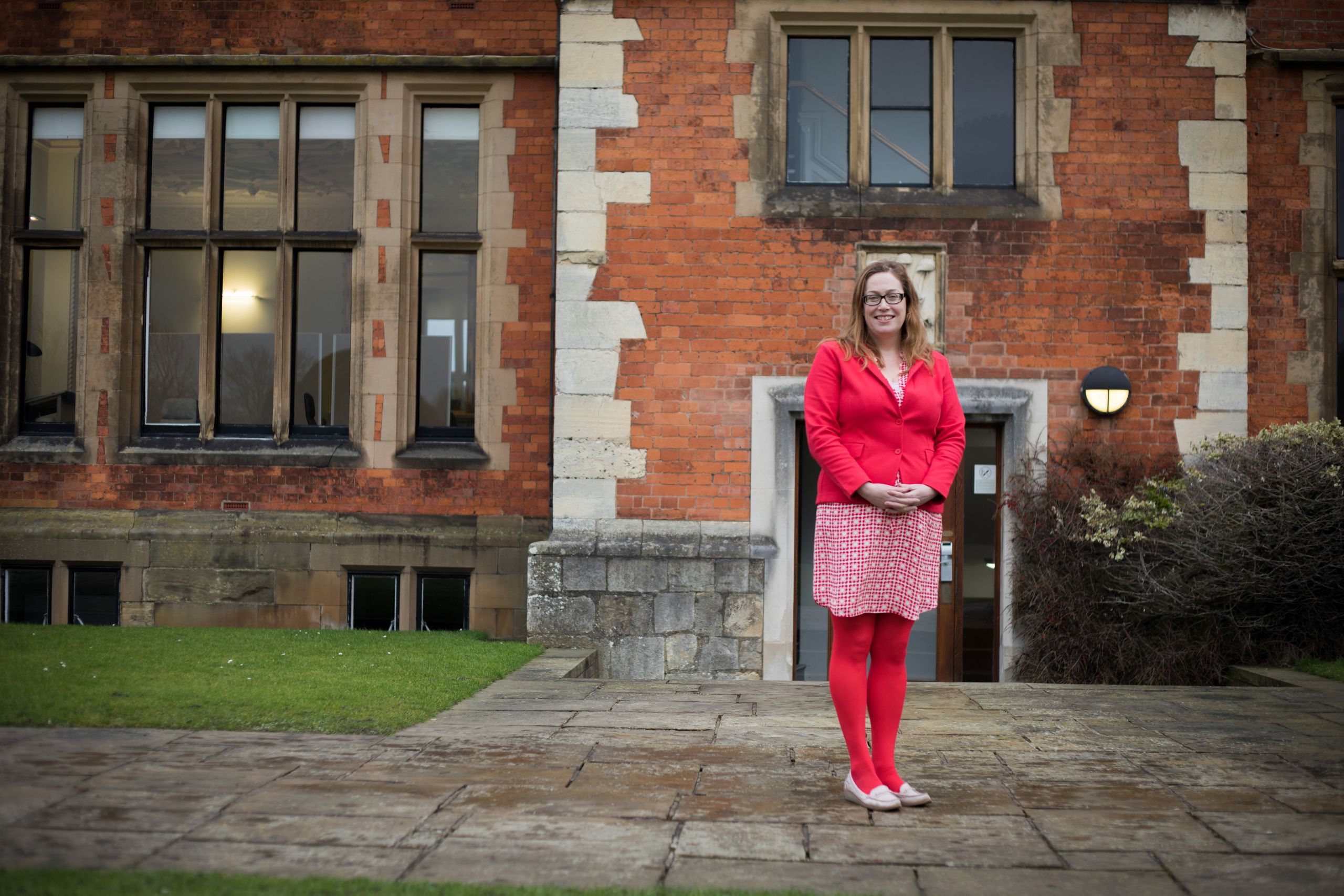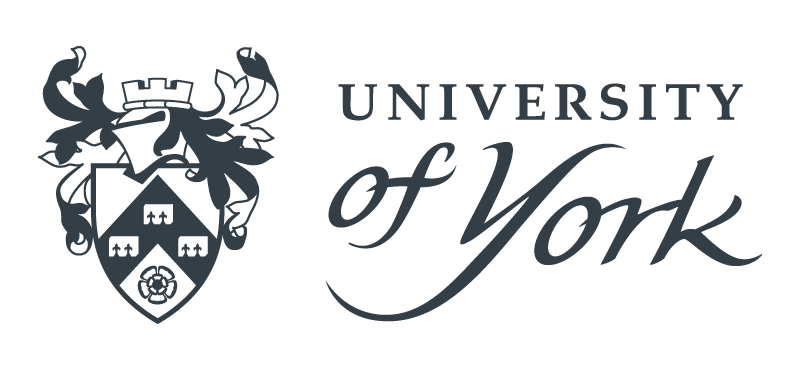International Women's Day 2020

"International Women's Day 2020 is a day to celebrate the achievements of women. It's also a time for unity, celebration, reflection, advocacy and action.
The stories here showcase just a small group of the amazing women we have within our community at York. Each of those featured share a common goal - they are committed to making changes which improve equality for everyone."
Professor Deborah Smith, Pro-Vice-Chancellor for Research,
University of York
Anna
“Until the end of last year I was the Athena SWAN Coordinator and I've just been appointed into a new role as Equality and Diversity Manager. I started my career in learning and development and I’ve had a variety of roles since, from the bottom up to management. I lived in Australia for fourteen years and for five of those I ran a women's leadership programme across five universities. Through that experience I became increasingly interested and involved in equality and diversity work. When I moved back to the UK and saw the Athena SWAN Coordinator role, it sounded ideal given my experience so I decided to apply.
Athena SWAN is the gender equality charter for the higher education sector. It’s a set of principles that universities sign up to, to commit to improving gender equality in their organisations. Under that they can apply for awards that recognise that work and we can apply at university level but also departmental level. Up to now my role has been to coordinate work across the departments and for the University’s Athena SWAN agenda.
Part of this has been the delivery of a cross-university action plan around gender equality and I’ve also been involved in preparing Athena SWAN applications. Within the role I’ve been able to work with such a range of colleagues from across all of our 27 Athena SWAN eligible departments.
The University was one of the original signatories to the Athena SWAN Charter and it’s evolved over the years. Initially it was around encouraging promoting progression of women in science, technology, engineering and mathematics (STEM) subjects, but it expanded in 2015 to all disciplines, and not just for academic women but to cover gender equality more broadly. It’s been really powerful in helping us understand what the barriers are that women still face in higher education. And it's really important because it's helped drive culture change. The charter gives us a framework for examining our data as well as understanding the lived experience of our staff and students - it helps us look at how our policies and practices actually affect people. We know that when we address issues of gender inequality, that has an overall positive impact for everybody, not just women.
We’re the first and only university to have three gold awards - in Biology, Chemistry and Psychology. In total we currently have 16 Athena Swan awards, including the University's overall award. All of our 27 Athena SWAN eligible academic departments are now working towards applications for their next award, or applying for their first awards. There’s been a real commitment across the university in making sure that the Athena SWAN is a key part of work going on in departments, which is fantastic.
The societal norms around gender are still really strong in certain areas. It is really hard to break down those barriers and stereotypes, but I think the University can play a role in doing that and we have a responsibility to do that. It really is hard work and can take time, but we can’t let that stop us - we should keep doing it. There are so many fantastic women at the university and each has got a good story so I just want to say happy International Women’s Day to all of them.” - Anna Reader, Equality and Diversity Manager
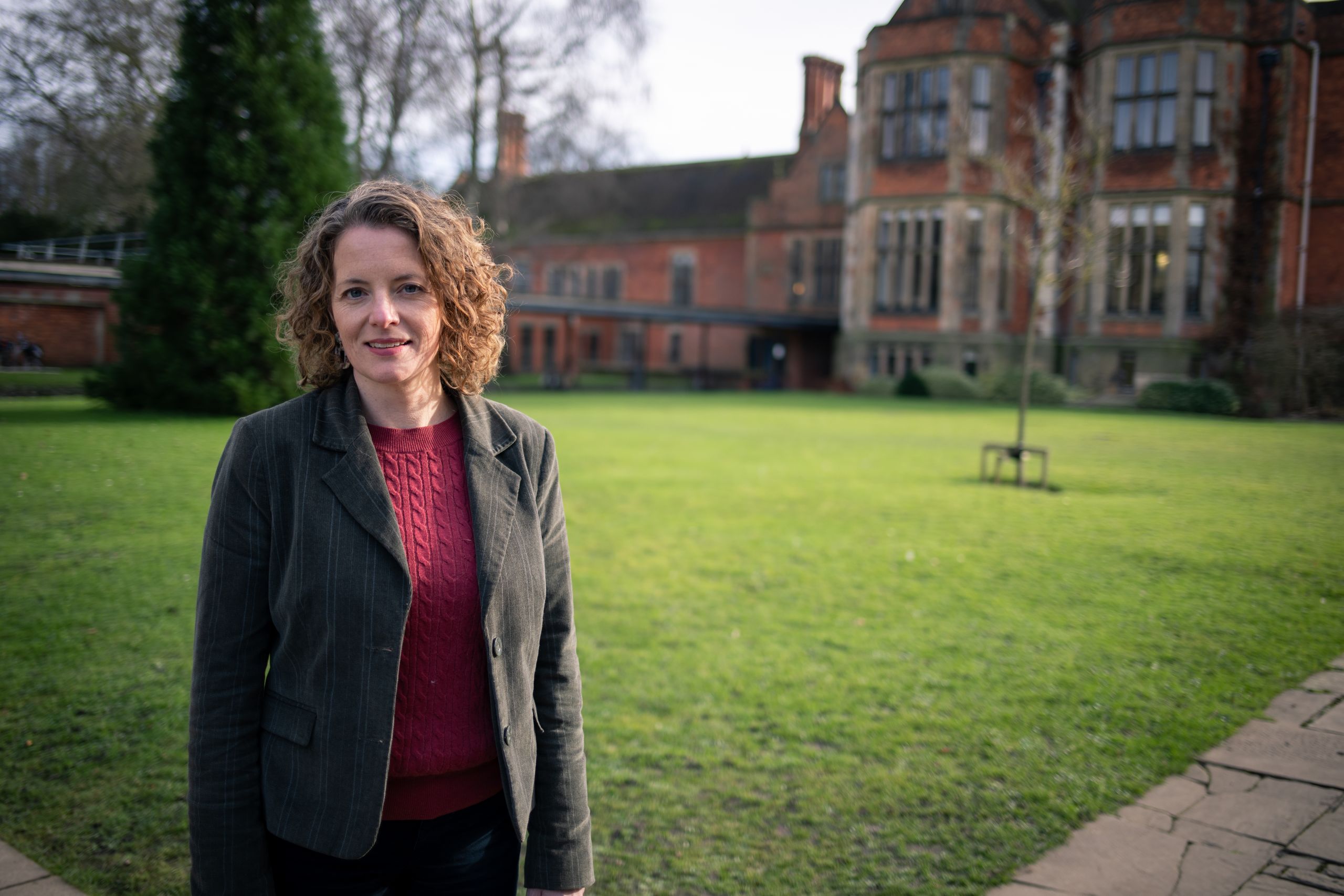
Nneoma
“I’m originally from a busy city in Nigeria. I was born there and I’m so used to the hectic nature of urban life, but I wanted to come to a quieter, more serene place to study for a change. It’s good to experience different perspectives and see life from another angle. I feel like, as an international student, living in another country and going to school in another place definitely helps broaden your mind. I did look around York before I studied here, but visiting and living somewhere is so different. I’d only visited in the summer, and I knew that the weather would vary, but I didn’t expect it to be so different in the autumn and winter months. I also didn’t expect everyone to be so nice and welcoming - that’s been a nice surprise!
It’s vital to have representation and support from and for people from different backgrounds at the University and I’m helping do this through my role as an International Student Ambassador. I think it’s important that these roles are in place and that we are able to help reflect how the University actually is to people who are thinking about studying here.
I’m currently the secretary for York African Caribbean Society (ACS) which is a student society for people from African and Caribbean backgrounds. We have a mix of international students and people from the UK who have family from those regions. We host lots of events throughout the year and it’s good for togetherness and just to feel at home. When I came to the university, being part of ACS made me feel better because, even though I'm away from home, it means I have people here I can relate to. It’s nice to have that even if I don’t see them everyday.
I’m studying Law and I’ve chosen Human Rights as one of my option modules. I wanted to study this topic because women’s rights, especially in Nigeria, are awful. There are terrible things happening like young girls being forced into marriage, and female genital mutilation (FGM). I feel very strongly about things like that – I want to use my studies as a stepping stone to change in terms of human rights in Nigeria. This is one one of my goals in life - to make sure that women are respected because right now many are not. That’s important to me. In terms of the law, the way rape trials and cases are handled in my home country needs improvement - sometimes there aren’t consequences for actions, even when there’s clear evidence. Human rights as a subject is very international. We have learned about events such as the Holocaust and Rwandan genocide, as well as issues faced in the UK.
Even though I feel that the situation for women in the UK is better than back home, there is still a lot of misogyny and issues do exist, such as the gender pay gap. I feel like the way that people see women, and react and respond to what they are saying needs work.
Something that I really like about York is the input that the students have into how the University is. It feels very student-led - we are able to have a say in so many areas of student life. Our opinions matter and it’s good to see feedback from student surveys being used to make positive changes.” - Nneoma, second year LLB Law student, York Law School
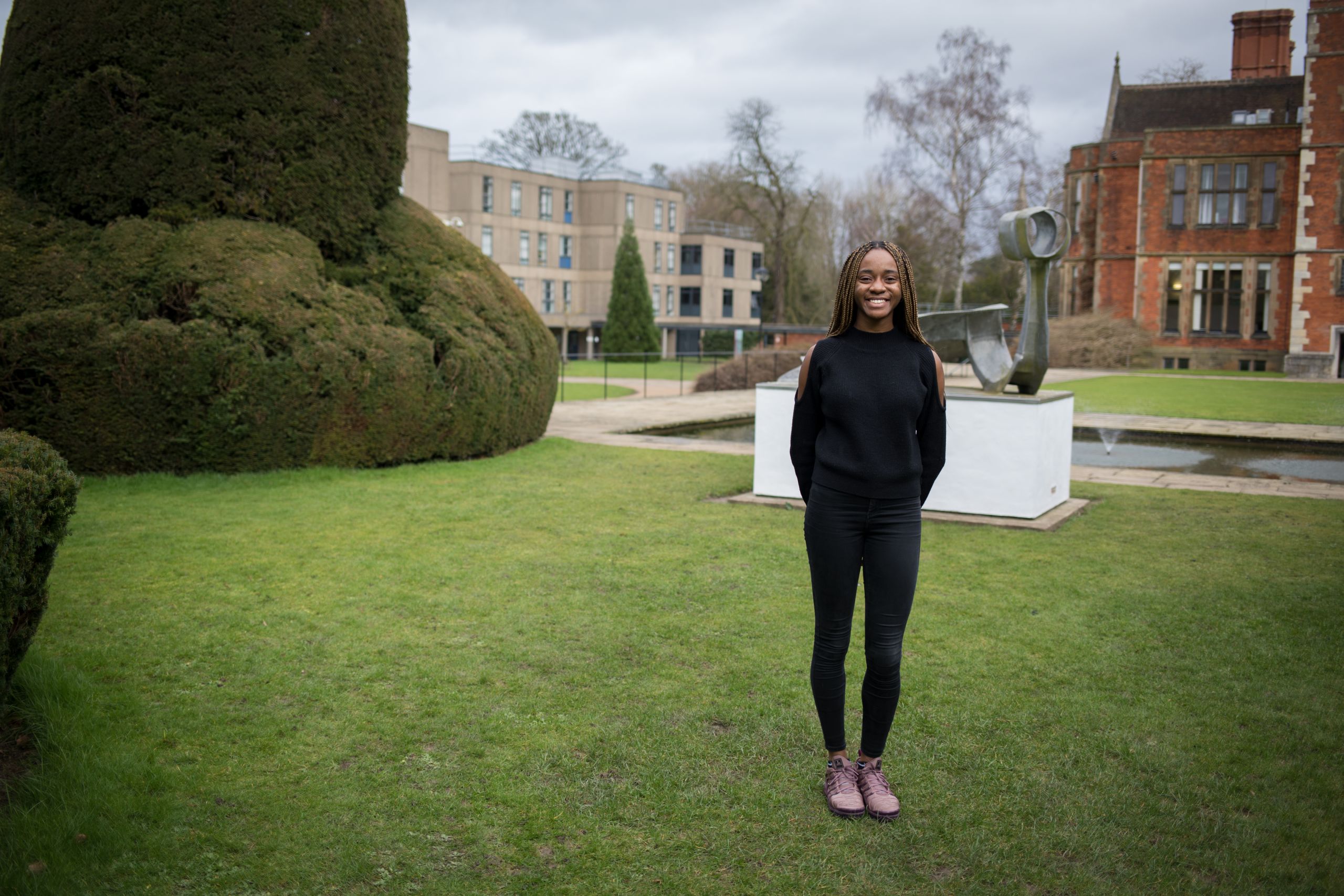
Evangeline
“My name is Evangeline and I'm currently gender equality research fellow based in Centre for Women's Studies. I've been in York for a long time now - this is my tenth year at the University. I started as a postgraduate student and now I’m on a research contract.
My most current research is focused on gender and intersectional equality at the University. As part of the Athena SWAN initiative, the University has made a commitment to make improvements in this area, so I've been talking to colleagues working here about their experiences and their understanding of equality and diversity issues.
I love working with people, so having that interaction with colleagues and listening to their different experiences and expertise has been amazing. I didn’t realise how many people outside of the Centre for Women's Studies are so passionate about equality and diversity. So, talking to people and hearing what they've got to say and learning about how much commitment they also put into this area has been really inspiring. It also goes to show how important it is to connect with each other.
Because of my personal experience as an immigrant - as a non-white, non-British woman, whose first language is not English - I was drawn to research into intersectional inequalities. For me it's important that we're not looking at binary gender. We should be looking beyond that and thinking about how to make an institution or a workplace, our everyday working experience, a pleasant and equal one for as many people as we can. I think in the ideal world, positions like mine shouldn't exist – if it was all equal and diversity-inclusive then I wouldn’t need to do what I’m doing.
Many people I’ve talked to have said we should just look at people's ability to know their expertise and their passion, rather than other defining social factors such as gender and race, ethnicity and so on. But there’s this idea that people need definitions to be able to understand the world around them - so these factors enable them to make sense of things. In an ideal world that division shouldn't exist, but in reality it does and while it can help us understand difference it can also have a negative impact.
There can often be a surge in interest in gender equality or gender studies because of a changing social political climate that's going the opposite direction. I’ve definitely seen that during the past ten years or so. It’s having an impact as I feel like more people are aware of the issues and are actually stepping up to enhance equality, particularly in higher education in the UK. Athena SWAN has had a huge effect and has been driving universities in the UK to change and that’s positive. While we can be critical of how that change will happen and how long it will take, it's better that people are talking about it rather than pretending that issues don't exist. I sometimes feel that talking about my passion for research in this area can be both hopeful and depressing at the same time!
One thing I do feel hopeful about and something I do love is that the Centre for Women's Studies is very unique. You can't really find any other independent centre in the UK that actually does research and postgraduate programmes - most of them have been absorbed into a particular department, but we have our own identity. We are both interdisciplinary and independent and our students all have very specific motivations. Their own personal and political reasons for coming to study here, means they are highly motivated, passionate and extremely skilled and knowledgeable in certain fields - that's absolutely amazing. You get to interact with people who are passionate about diversity and equality and much more open to challenge status quo. I think that's so important in feminist research – it’s important to challenge and to be challenged.
As a Centre we have a very close-knit community and we try to break down hierarchy between so-called teachers and students. It's about how people get together and that’s important when we’re thinking about, for instance, International Women's Day. It's about creating a space where we can all come together to discuss what we can do to change the world for the better. I can't believe I'm talking to you about this and smiling - but that just gives me so much hope that so many people are passionate and working all together.” - Evangeline, Research Fellow, Centre for Women’s Studies
Find out more about Evangeline’s research.
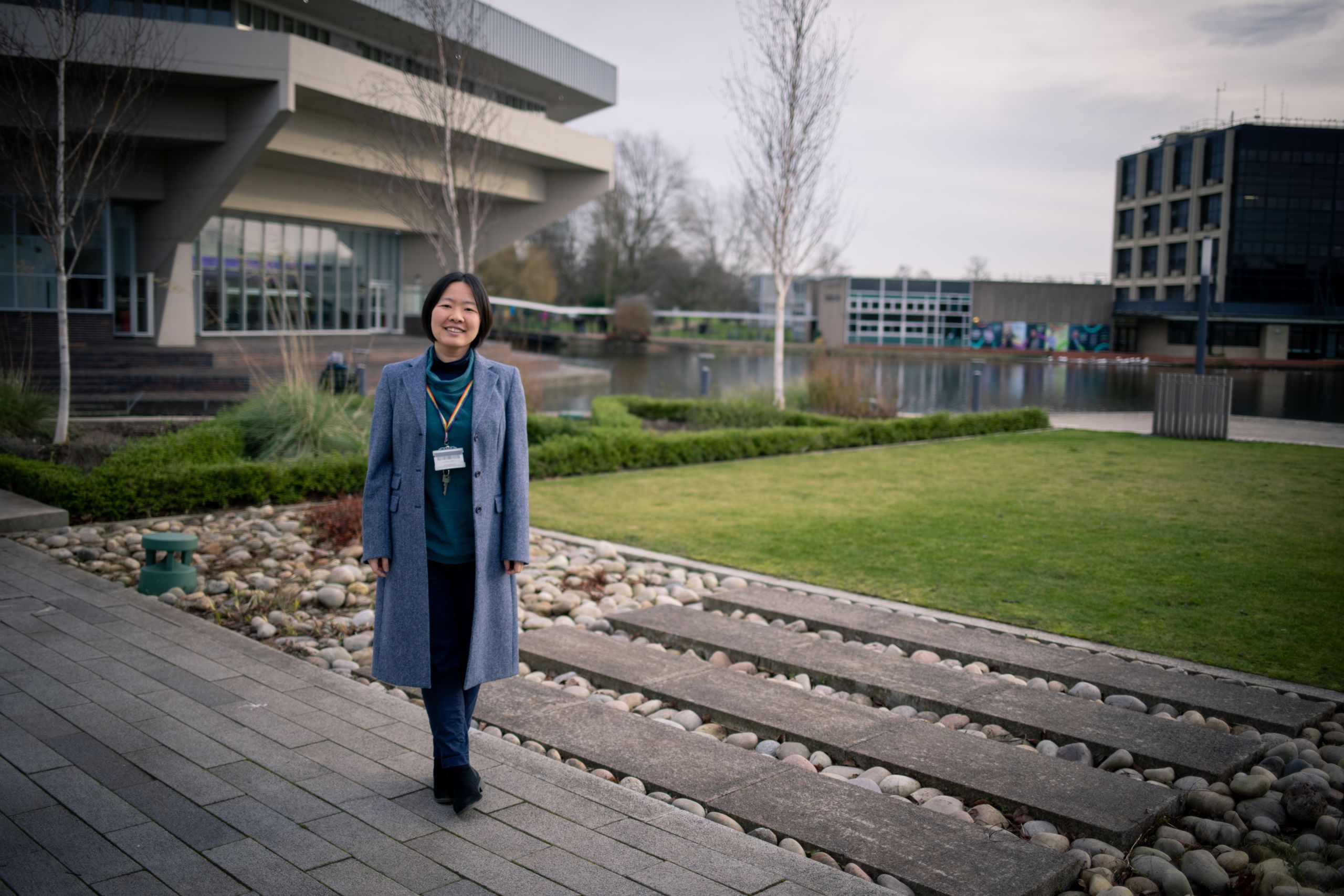
Caroline
“I’ve been part of equality and diversity work in the Department of Chemistry since the very beginning really, which was a few years before the Athena SWAN scheme even started. I’m now the chair of the Equality and Diversity group in Chemistry.
Initially my involvement was driven by personal experience. I held a Royal Society University Research Fellowship and I had already had my first child. It was a time when there were very few women in the Department, so I was able to contribute to building new policies for the Department by sharing my “lived experience”. I was someone who could talk about the issues that I was facing as a young academic with a young child.
In 2003 I got involved in a project with the Calouste Gulbenkian Foundation through the Royal Society where I was asked to write a diary for a book - ‘Science, Not Art: Ten Scientists' Diaries’. At the time it felt quite pioneering to talk about your home life, as well your working life because this just wasn't done. After it was published we included some extracts in one of the chemistry magazines in the department. At the time, one of the senior academics said to me “gosh you're so brave to have done that - I showed my wife and she couldn't believe it”. What a different world we're living in now. I’ve valued the opportunity to do things like that and be somebody in the Department of Chemistry who could be a successful academic alongside making family life work.
Previous Heads of Department, Robin Peretz, and then subsequently Paul Walton, have been great supporters of women scientists and as a result the Department made a conscious effort over a period of years to recruit more women. This has had a knock-on effect and led to us seeing many more women applying for roles in the Department. In the early 2000s, there were few female academics who had children, and it was one thing that was considered to create a barrier that prevented young women from deciding to pursue academic careers in chemistry - the idea that you can either have a family or an academic career, not both.
The Department has an Athena SWAN Gold award and we’ve held this for over a decade now. We were the first department here to achieve this and it’s had an impact in encouraging other departments to apply. It’s been really satisfying to see the impact it’s had in changing the behaviour of men too. We have female professors who work part-time, but we also have male professors who work part-time. I think male academic staff feel that they can work part-time, having seen that women were able to make it work. I think that's very much what the atmosphere is like in our department - flexibility and part-time work is something we are proud of, and is very much part of our departmental identity.
I think that role models can be hugely important to have as a scientific community, especially if we're thinking about other protected characteristics that are important for Equality, Diversity and Inclusion. That is something I'm very conscious of at the moment as there's an absolute dearth of BME academics in the UK chemistry. We really need more - it’s important for current BME undergraduates and PhD students to aspirational role models in those positions.
International Women's Day is a great opportunity to celebrate some of the wonderful achievements of women on campus and all across the world. And that is really so important for us as chemists. While on many levels there have been improvements in terms of gender equality in science, I think there are still challenges - for example women winning the biggest prizes in science like Nobel Prizes. So, there is work to be done in terms of properly celebrating the achievements of women, but I think we’re moving in the right direction.” - Dr Caroline Dessent, Reader in Physical Chemistry, Department of Chemistry
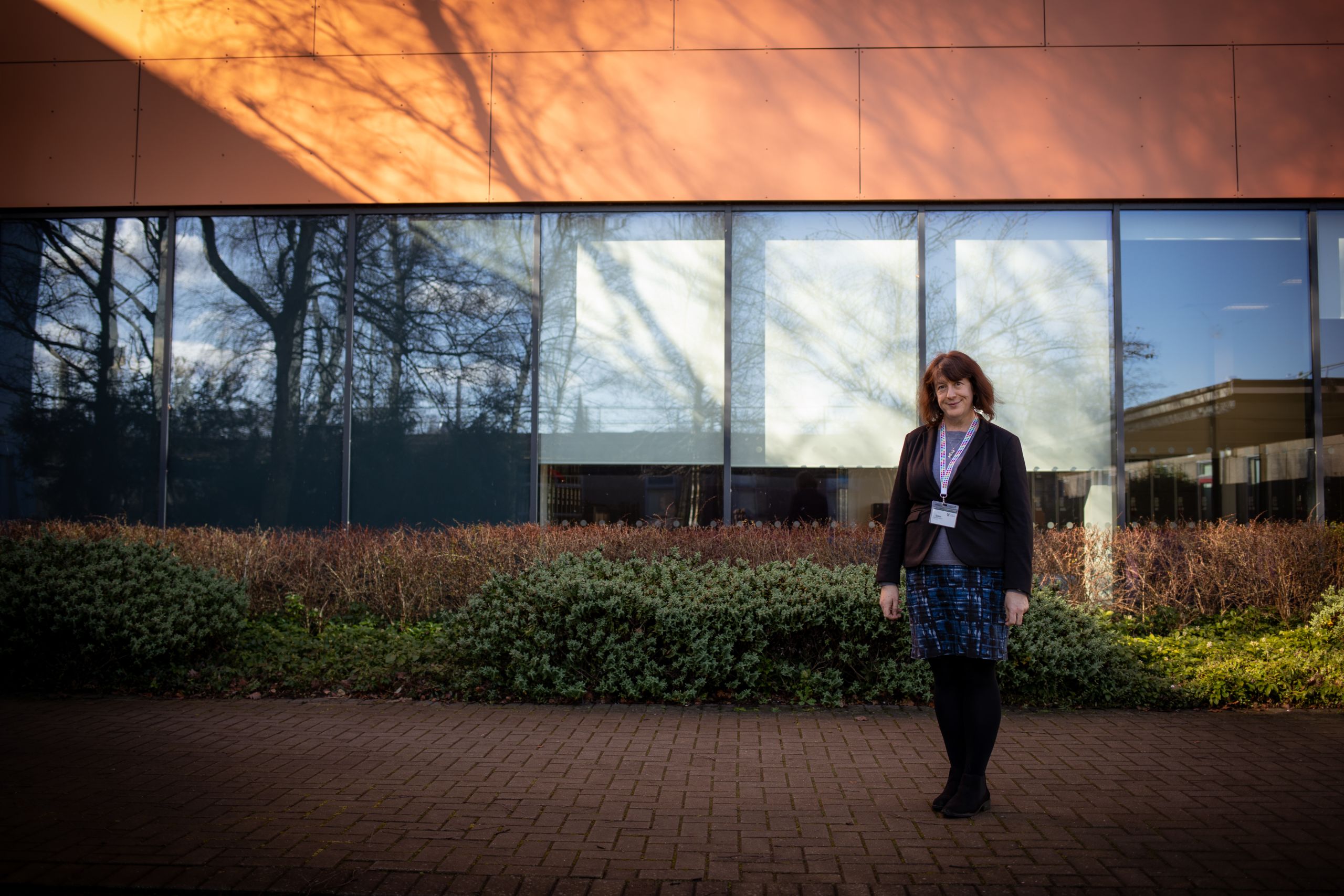
Clau
“Within my PhD I’m focusing on this sensorial experience called ‘ASMR’ - Autonomous Sensory Meridian Response. ASMR-inducing content is becoming increasingly popular on video-sharing platforms like Vimeo and YouTube and I'm analysing the sound element of that type of media for wellbeing in adolescents. I discovered the concept of ASMR relatively recently - about a couple of years ago - and I got very curious about it. I find it fascinating and I want to discover how sound can help people’s mental health through this experience. There isn’t much scientific evidence behind it yet, because it's really new, but that’s why I’m doing this research.
Dr Mariana Lopez is my PhD supervisor and she's an amazing academic, researcher, lecturer - she works for accessibility, for diversity, for inclusion, and for gender parity; an inspiration really. She's a great human who is really kind and helps people, not only academically but in an integral way. She does such important work in terms of gender equality in audio.
There is still a huge lack of balance in sound engineering. It’s been estimated that around 5% of those in the audio industry identify as female or non-binary. It varies from country to country, but it's still a worldwide situation. There are global and local initiatives out there though which are trying to address this and increase diversity in the industry, for example HeForShe, SoundGirls.Org, Yorkshire Sound Women Network (YSWN) and Women's Audio Mission. I think it's getting better, but there’s still a long way to go to achieve equality.
I definitely see a difference in gender balance in the UK and my home country of Mexico, not only with regards to the presence of females or non-binary in the audio industry, but also with the attitudes and mindset. In Mexico it feels like we’re really behind with gender equality and diversity, and there's a lot of harassment as well. I know that's a worldwide problem but it feels like a more peaceful environment here. There are more opportunities in the UK and there are more allies in the industry, because it's not only women working for women, but the whole industry working to make the space a better place to work in. Seeing different initiatives celebrating diversity and inclusion in the UK makes it hard to look back at Mexico and feel comfortable with the situation there.
I think if I could change one thing in 2020 it would be this idea of gender roles - it feels so illusory. Males, females, non-binary or any gender that people identify with, it doesn't make a difference in people's capacities. I think that the perceived ‘difference’ is down to the way we have been assigned these roles in history - nothing more. Everyone's just a person. They might have different talents, but it’s not because of a gender.
If I was to give other women or girls advice about working in this area of research or studying sound engineering, I would say that if there's at least a little voice inside their head telling them “oh this might be cool” - that's it. Listen to that. Having doubts happens all the time, but as long as you have this kind of instinct or curiosity, that's the foundation of great things.
Being part of the University of York community has given me a world of opportunities. I've met so many people, from so many countries, with lots of different interests. I feel this diversity has helped me to be more open as well. Lecturers, administrators, catering staff, students, everyone - they all work so hard and they’re always so keen to help. It’s fair to say that I'm in love with York - both the university and the city. I really love this country and the opportunities it offers, and I really hope that people realise the community that they live within and that they cherish and treasure that too.” - Clau Nader, PhD student in Theatre, Film, Television and Interactive Media (TFTI)
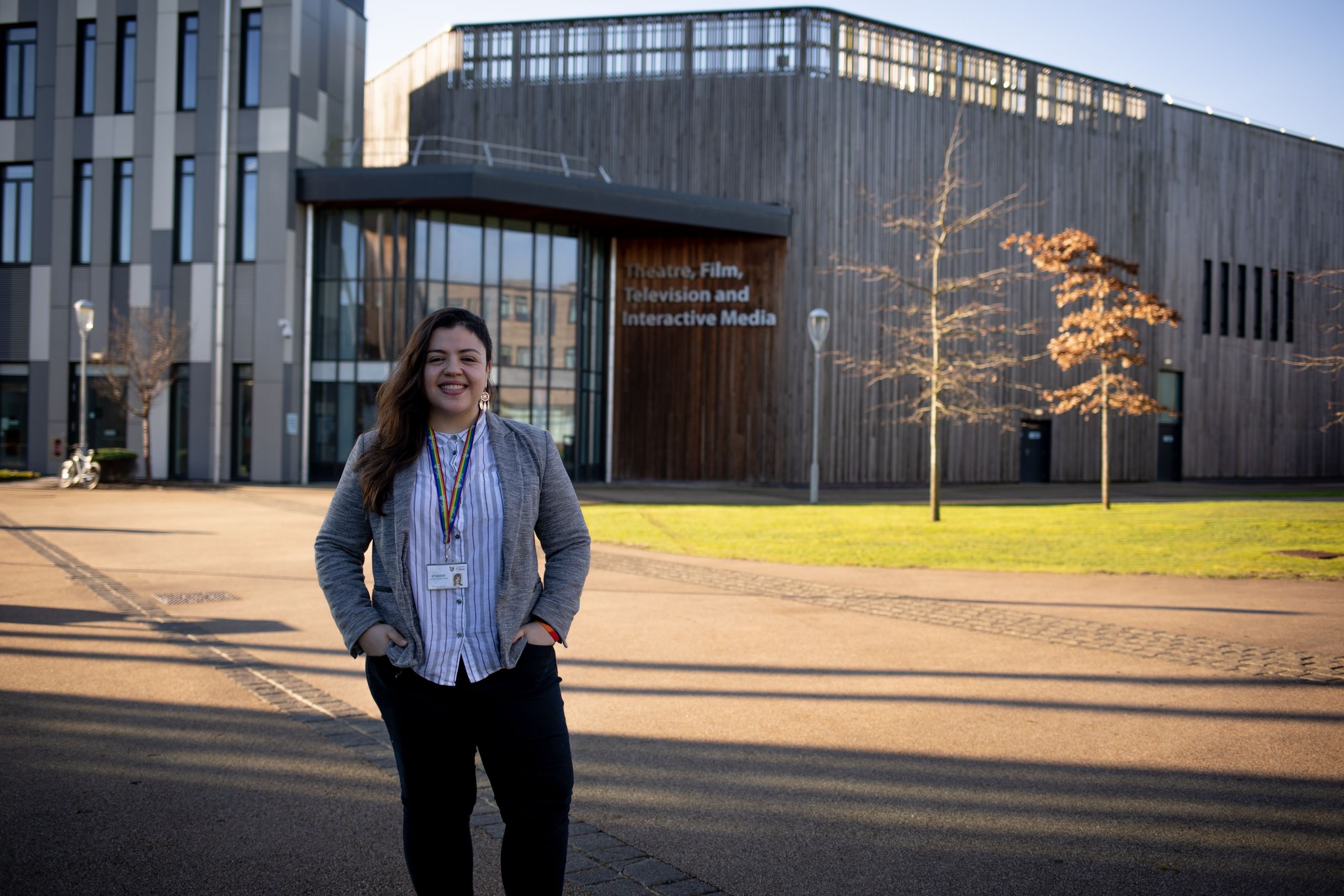
Mo
“I've been at the University for about 15 years and I've always been really open about my own disability, even when I was walking quite well, because it is quite an unpredictable condition. I have a hypermobility syndrome which means that my mobility can vary from day to day. When I started working here, there wasn't a disabled staff network. INCLUDE (Inclusive Network Connecting and Linking University Disabled Employees) was established five years ago by Liz Critchley in HR and I took on the role of co-chair around three years ago alongside Penny Spikins from the Department of Archaeology. What started quite small is now gaining more momentum across the University. The steering group has grown this year and within the network we cover a broad spectrum of disabilities, and none, so there are lots of different perspectives. There’s been an awful lot of positive change since the network began.
We hold three network meetings a year and they are open to all staff, whether they are disabled or just interested in hearing about disability matters. We're not an exclusive network - hopefully we live up to our name in that we are inclusive and everyone feels welcome. Disability does affect everybody and that’s why this network is important. We might not know if someone has a disability but we will be interacting with disabled people in our jobs. And if you’re disabled yourself, it's good to contribute to accessibility initiatives across the university and meet with peers and people who are supportive.
Sometimes people are fearful of reporting a disability because they think that it will be viewed negatively, but for most people disclosing disability is a positive thing, because adjustments can be put in place. I think there is still a bit of a stigma around disclosing invisible disabilities like mental health conditions and specific learning difficulties such as dyslexia and even autism spectrum conditions. People don't like to think of themselves as being ‘disabled’ even when they do fit the Equality Act definition of disability, but I would still encourage them to disclose.
We have done quite a bit of work here on improving access to mental health support and access to people to talk to across the university. The development of the Mental Health First Contact Network has been a huge positive. Remploy also came to speak to us about their Mental Health Support Service, working with individuals and employers to create support plans and put adjustments in place. Things like that make me feel confident that things are improving in terms of how we support staff.
I haven't felt that I've been discriminated against because of my gender. I don't know whether, in a way, it's been a protective characteristic ‘top trumps’ for me - perhaps my disability has had more of an impact on my opportunities to progress in the past. I don’t allow it to hold me back though and I’ve been fortunate to be part of a number of different outside stakeholder groups and networks which are linked to my work, such as the National Association of Student Money Advisers. For almost ten years, I was also part of the disabled student stakeholder group for Student Finance England and Wales. Seeing women leaders within other organisations and professional networks that I’ve been part of, has certainly inspired me to do more alongside my job and take on these additional roles.
Outside work I recently became the first woman in the UK to run a half-marathon on a RaceRunner frame. I did two half marathons last year - I set the record in May and broke it in October. It was really good fun. I like to get out and run and just raise awareness that even if you happen to be a wheelchair user, you can still get out and exercise.” - Mo Onyett, Student Adviser, Student Hub
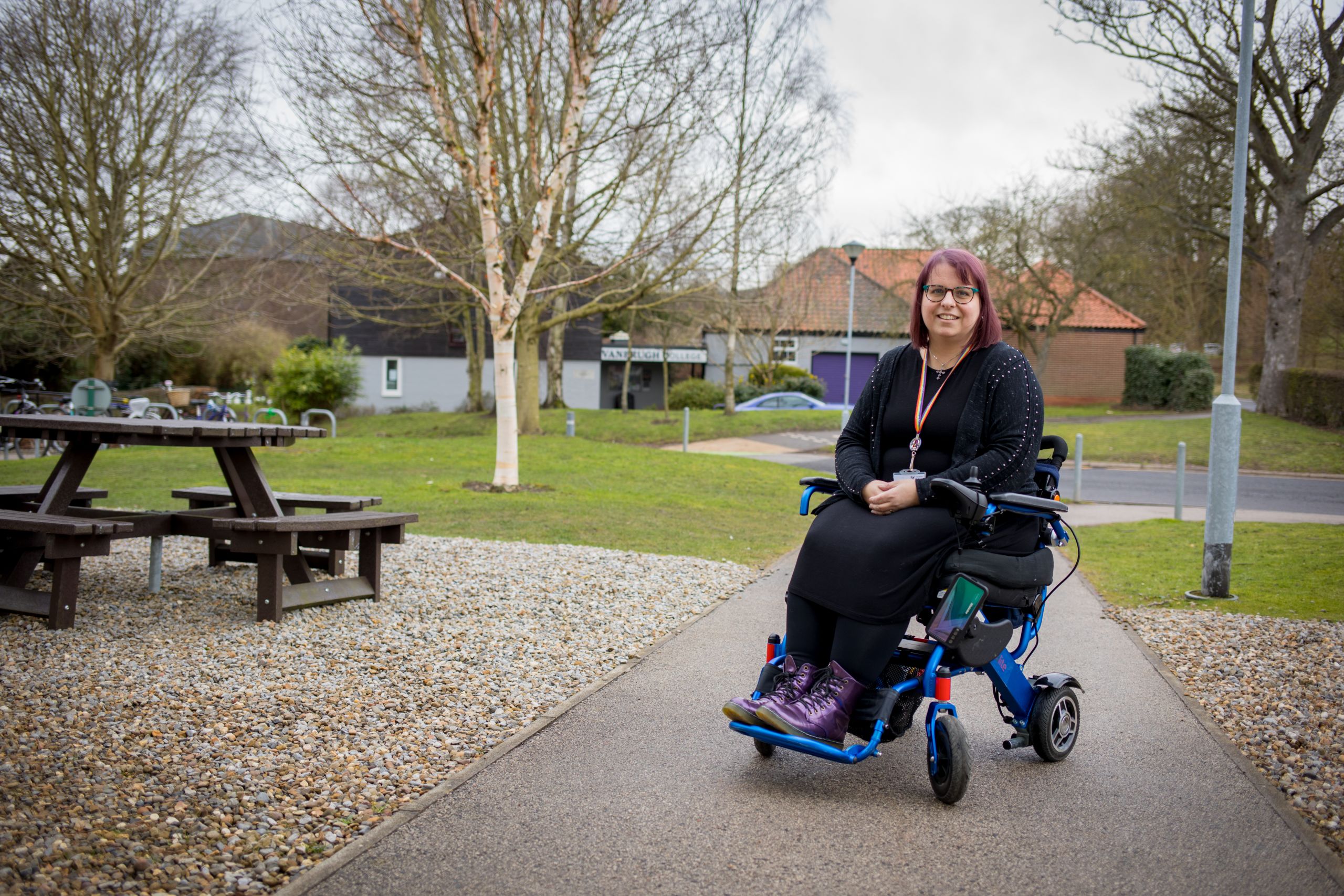
Free the flow
“Free the Flow York is a student-led volunteering project based here at the university. We are working towards three main goals - to end period poverty in our local community and wider communities (including our work with Project Gambia), to #endthestigma and promote period positivity and also to encourage a better understanding of the issues faced by menstruators.
We're very careful to just say ‘menstruators’ when we talk so as not to exclude people. It’s important to remember, recognise and celebrate the fact that not all menstruators are women and not all women menstruate. Periods or menstruation are sometimes seen exclusively as an issue affecting women but we recognise that's not the case. It’s something that we are particularly keen to educate people about.
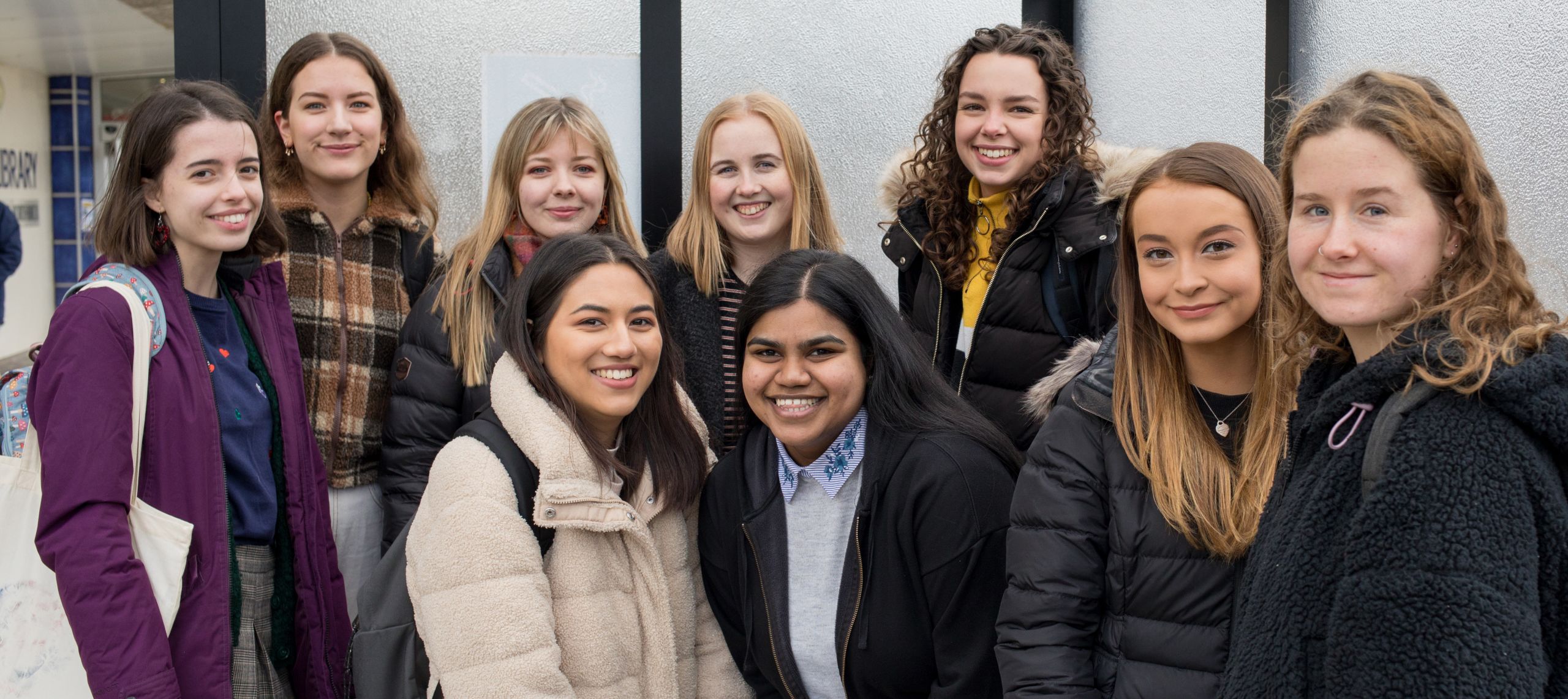
L-R: Ciara, Eszter, Faith, Katrina, Ella, Magalie, Kezia, Ellie and Evie
L-R: Ciara, Eszter, Faith, Katrina, Ella, Magalie, Kezia, Ellie and Evie
Free the Flow is establishing connections with student groups and charitable organisations across York and in the wider community. Our team is so passionate and we'd really like to share this passion with other students further afield in order to grow the network. Students make brilliant activists and we’ve always wanted to make the most of that because by enabling activists in different places all over the country it’s possible to achieve a ripple effect in terms of our impact. We hope that our work can play a role in helping to end period poverty across the nation – it’s a really powerful and positive initiative to be part of.
Free the Flow is quite a new project, but we’ve already hosted a few events to promote period positivity and raise awareness of the understanding of issues faced by menstruators. We’ve held ‘Menstruation Conversations’, an event on sexual violence awareness and a talk on female genital mutilation (FGM). It’s so important for us to get people talking about the situation. If you’re interested in coming along to an event you can find out what’s coming up by having a look at our Facebook page.
We’ve been working to provide period products on campus for students who are menstruators in need as well. Changing policy is a long process, but we are working hard on this behind the scenes. At the end of first term, we held a winter collection with the YUSU Women and Non-binary Network to gather period products for those in need. We ended up with more than 1,000 products which is absolutely exceptional and hopefully, we'll do something similar in the future depending on how our policy work turns out. Half of the products went to certain villages in the Gambia that we are working within Gambia and half of them went to a local homeless charity, Robinson Court (managed by Changing Lives) - reflecting our focus on both the local community and international community.”
Find out more about Free the Flow on the YUSU website and give them a follow on Instagram and Twitter
Vicky
“I work in the Systems team in IT and we look after things like virtual machines and file stores - basically we’re like the plumbers of IT as we keep everything running behind the scenes. I was always interested in IT growing up but we didn’t have computers at home and I thought that to work in the field you had to be really good at maths (which I wasn’t). I ended up studying History at university which I loved and got a job working in the Library which I really enjoyed. After getting the opportunity to work on the IT helpdesk as part of my role, I gained more knowledge and skills in this area and that led me to this job.
The field can be quite male-dominated but there are some initiatives out there which are trying to address and improve gender balance. On campus we have a Gender Equality in Tech group which is really good as both men and women are involved. It started as something for IT and Library staff but it’s open to everyone. And city-wide there’s a Women in Tech group which was established in 2018. I went to the very first Women in Tech session, which was in a little pub in the city centre. It was absolutely packed full of women who were excited about IT and it’s continued to grow. I think that it is really important that all genders are welcome in these groups - not just women. In industries and areas where men tend to hold the positions of power, it’s vital that they are part of the conversation. I think it's important to have champions who will help make changes by listening and offering support.
It’s quite hard sometimes when you go to technology conferences and there are hardly any women there. If you’re the only woman in the room sometimes you’re made to feel like you have to represent your entire gender and it’s your responsibility to improve things for everyone. That can be tough and it can put you off wanting to get involved, but I know that if I stop going there might not be any women at these events and that would be worse.
I sometimes hear women in IT roles saying “I’m not a very technical person” and then they go on to describe how technical their job is. I don’t think that this idea of ‘impostor syndrome’ is necessarily exclusive to women, but I think it can be more common for women to feel like maybe they shouldn’t be somewhere, or they got a role due to circumstance, rather than skill. Sometimes I feel like that but in my team everyone is really supportive and encouraging. My manager put me forward for a degree apprenticeship in digital and technology solutions - that was awesome because I would never have put myself forward for that. It’s hard work doing it alongside my job but it's teaching me the fundamentals and that’s giving me that extra confidence boost.
In terms of role models, I’ve been really inspired by Sarah Kennedy, who's head of Desktop and Printing here at York. When I worked on the IT helpdesk she was the manager there and she’s been so supportive. She works incredibly hard and is really approachable - she listens without judgement when I need help or have a problem. She's just a good all-rounder – I would love to be the same kind of role model that she is.
I think attitudes around gender equality are changing and there are fewer barriers than there once were, but there are still barriers out there. We need to keep having conversations about it and making sure we're including everyone. You don’t always see massive change overnight, we have to make small steps, but I do think we are making these steps and we need to keep moving forward and working together on it.” - Vicky Wilkie, Systems Support Specialist, IT Services
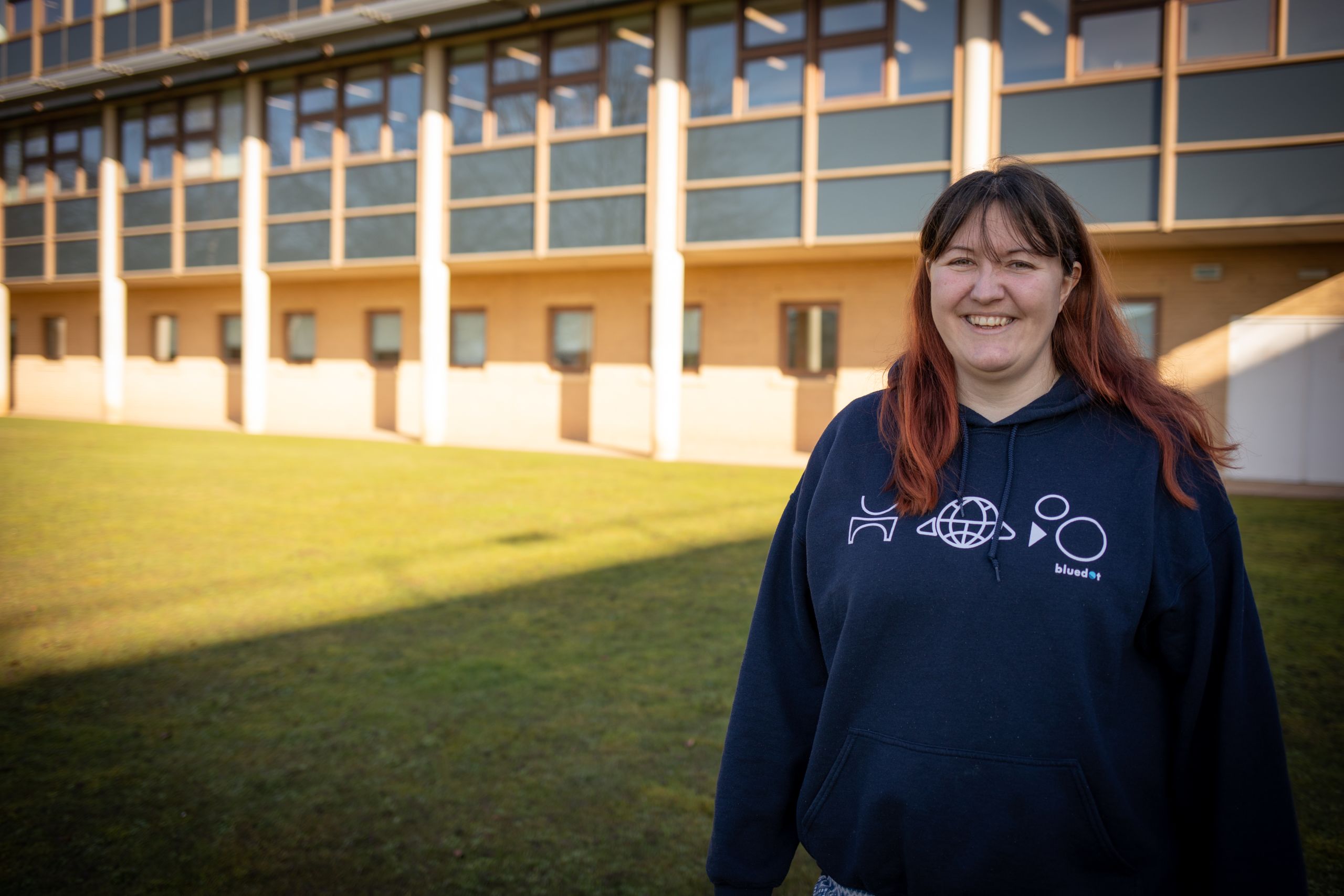
Hannah
“I'm the co-chair for the LGBTI+ Matters forum which is a staff network at the University for both people who identify as being LGBTI+ or those who are allies. So matters of Equality are hugely important to me. As a forum, we want to help get the right support in place for people who need it. Part of this work has been to consider ways for how we can gain a clearer sense of our workforce - who is working here and how they identify. In the long run, this will help us identify trends, understand which areas are underrepresented and also spot opportunities. One area we do need to focus on is Trans Awareness training. Ideally we’d like to get people from all levels, right up to senior staff, to go through the training so that our Trans staff can be supported in the right way.
International Women's Day is around raising awareness of the issues that people continue to face in their lives. As well as thinking about gender, it’s also important to recognise intersectionality. An individual might identify with a whole range of different things that cut across so many areas - for instance, you might have a gay woman, who's disabled, from a BME background. It’s complex and where there are pockets of misrepresentation, it’s important that we understand what the root cause behind that is, and then work to tackle that.
Something the University has been doing in terms of recruitment is making sure that interview panels have both male and female representation. In addition to this, I know teams across the University have been looking at job descriptions and the language used, to make them more attractive to women or men, depending on balance in that particular field. For example, IT traditionally has been a male-dominated field, so the Directorate has been doing this to attract more applications from women. While in Careers, which is typically quite female-dominated, we’ve been working to make roles attractive to men as well and to ensure interview panels have the right gender balance. Over the last year we’ve already seen an impact as we’ve had more men applying for jobs and more men appointed.
I read recently that companies in the top quartile for gender diversity are 15% more likely to outperform the competition in that space. I don't think that that's necessarily just down to gender diversity but all diversity. A diverse organisation leads to diversity of thought, and more creativity in how we support people in different situations. If you’re in an organisation where there is a lot more diversity, there might be a more flexible working policy as a result and this can impact in a positive way for everyone - not just women.
As well as offering flexible working practices at the university, I feel that we need to explore the importance of positive senior role models and mentors. Heidi Fraser-Krauss (Deputy Registrar and Director of Corporate and Information Services) has been a really strong role model for a number of women here, as well as Jo Horsburgh (University Registrar and Secretary) and Joan Concannon (Director of External Relations). It’s really encouraging and exciting to see those women in those roles. We need to ensure that there’s a framework and the environment for women to be trained so that they feel confident and assured to apply for more senior level roles.” - Hannah Smith, Head of Operations, Careers and Placements
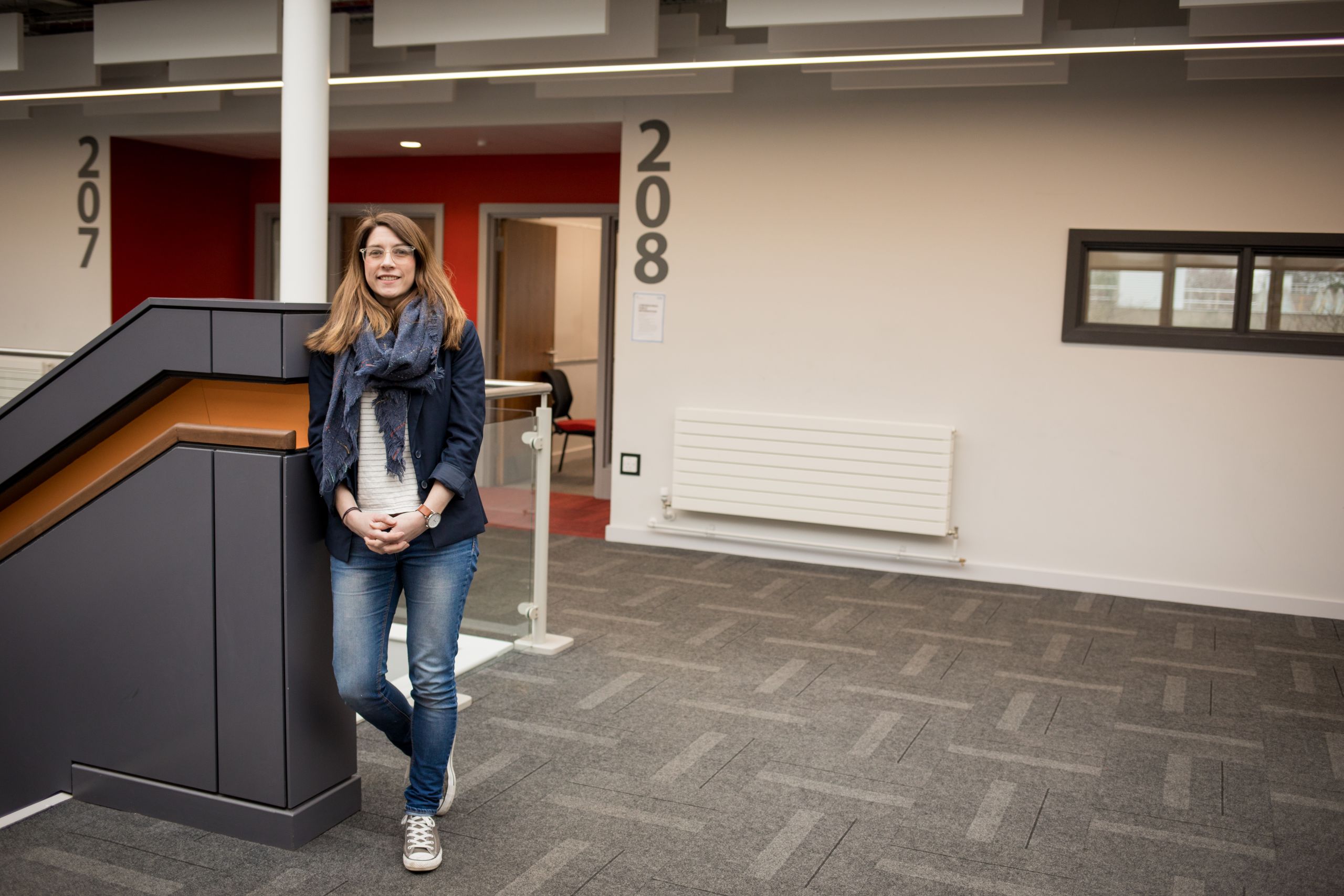
Sarah
“My role is split between delivery - things like Springboard, leadership management, resilience training - and time working with teams on bespoke development. I also look after a few projects that are central to learning such as apprenticeships and accreditation. It's quite a busy role but it’s also varied and I get to use so many different skills. Over the years I’ve had lots of different jobs from working in a finishing school to managing a floor in a bookshop! After retraining to be a teacher I found a job in learning and development and I’ve been working in this field and sector ever since.
The Springboard programme is not a massive part of what I do, but it's one of my favourite things. I'd heard about it quite a few years before I actually got to the accreditation stage and I love the fact that it’s so positive. The one thing that participants on the programme have in common is that they're women or they're living as women. That's it. It’s designed to help individuals identify their strengths, and make sure that they're able to use them in their roles at work as well as their everyday lives. It’s future-focused, because everyone is thinking about what they want to do differently and changes they want to make. It's a great environment because everyone is there to support each other. They will challenge each other, but it's done constructively, in a safe space.
You can see the impact of Springboard on the participants pretty much immediately from the end of day one. At this point they have grown their own network of contacts on campus by 25 or so people from a range of roles and departments, and I see them develop as they continue through the programme. It’s amazing to see them using that confidence and support to improve their lives in a positive way. I think it's really powerful and it's an absolute honour to be part of the programme.
Springboard is huge internationally - lots of countries are involved from Armenia to Yemen, New Zealand to Malta. There are very few countries or continents that it's not available in. It’s a programme that has been undertaken by about a third of a million women across the world so far, and that’s amazing.
As a university our inclusive community is at the heart of what we do. I think it's massively important that Springboard exists and is available here, because it contributes to that. For women there are many different aspects of inclusivity and there are groups that will offer that, but this is a programme that is just for women and that’s vital.
Research around the gender pay gap has highlighted that some women are not paid at the same rate as men, for the same jobs. There's a reason for that and it's not about ability or competence or performance. Some of it is down to lack of opportunity and some of it is down to confidence. Springboard is here to try to redress the balance.
Similar programmes for men also exist. The Navigator programme is exclusively for men for instance, but it isn’t something that’s been run here yet because we haven't had the demand. Programmes for men differ to Springboard due to different developmental needs for men and women. For instance they may focus less on building confidence but more around setting objectives.
I think in general anything where you're getting a group of people together and helping them to build their own networks and become more assertive is really impactful. Springboard’s protected space means that individuals can learn and flourish, and build that confidence so that they can use it in the wider world. Programmes like Springboard are key to this.” - Sarah Farrell, Development Partner (People and Organisation)
